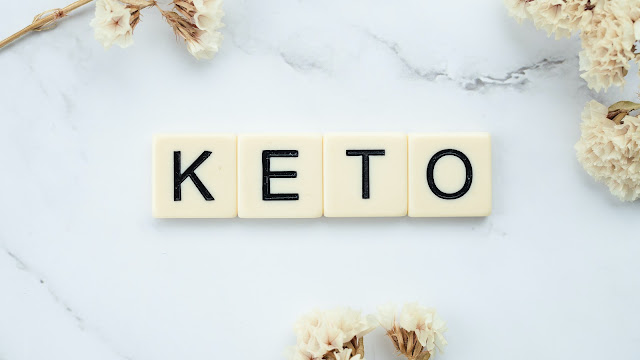The Keto Diet: A Comprehensive Guide to the Low-Carb High-Fat Eating Style
Have you heard of the keto diet? It's an eating style that focuses on low carbohydrates and high fat, with the goal of pushing the body into a state of ketosis. Ketosis is a metabolic state where the body burns fat for energy instead of glucose. The keto diet has gained popularity in recent years due to its potential benefits, including weight loss, improved mental clarity, reduced inflammation, and better blood sugar control.
While the keto diet is not for everyone, it can be a beneficial lifestyle change for those who need to lose weight, manage insulin resistance or type 2 diabetes, or improve mental clarity and mood. In this article, we'll explore the basics of the keto diet, including what to eat and what to avoid, how it works, potential benefits, and potential drawbacks. We'll also give you a few examples of keto-friendly recipes to help you get started on your keto journey.
The keto diet is an extremely low-carb, high-fat eating plan that was originally designed to treat epilepsy in children. Over time, it gained popularity as a weight loss tool and a lifestyle modification for people with insulin resistance or type 2 diabetes.
On the keto diet, you limit your daily carbohydrate intake to less than 50 grams a day, which is equivalent to about 10 small apples. The remaining calories come from fat, which should make up 70-80% of your daily intake. You also increase your protein intake to ensure your body gets enough nutrients and to help you feel full longer.
The goal of the keto diet is to force your body to burn fat for energy instead of glucose. When you significantly reduce your carbohydrate intake, your body goes into a state of ketosis, where it uses fat as its primary energy source. This can lead to weight loss, improved insulin sensitivity, and other health benefits.
When you eat carbohydrates, your body breaks them down into glucose and uses that as its primary energy source. When you restrict your carbohydrate intake, your body can't use glucose for energy, so it turns to your fat stores. This process, known as ketosis, involves breaking down fat into a compound called ketones, which your body uses for energy instead of glucose.
**What is the keto diet?**
The keto diet is an extremely low-carb, high-fat eating plan that was originally designed to treat epilepsy in children. Over time, it gained popularity as a weight loss tool and a lifestyle modification for people with insulin resistance or type 2 diabetes.
The goal of the keto diet is to force your body to burn fat for energy instead of glucose. When you significantly reduce your carbohydrate intake, your body goes into a state of ketosis, where it uses fat as its primary energy source. This can lead to weight loss, improved insulin sensitivity, and other health benefits.
**How does the keto diet work?**
When you eat carbohydrates, your body breaks them down into glucose and uses that as its primary energy source. When you restrict your carbohydrate intake, your body can't use glucose for energy, so it turns to your fat stores. This process, known as ketosis, involves breaking down fat into a compound called ketones, which your body uses for energy instead of glucose.
When your body produces ketones, it enters a metabolic state called ketosis. This state is different from the way your body normally functions, where glucose serves as the primary energy source. When your body is in ketosis, your brain, and other organs have to adapt to using ketones for energy instead of glucose.
This process can take a few weeks, and during this time, you may experience symptoms such as fatigue, brain fog, and nausea. These symptoms, known as the "keto flu," are a result of your body adjusting to the new metabolic state and can be temporary. However, once your body has adjusted to using ketones for energy, you may experience benefits such as more sustained energy, improved mental clarity, and better focus.
This process can take a few weeks, and during this time, you may experience symptoms such as fatigue, brain fog, and nausea. These symptoms, known as the "keto flu," are a result of your body adjusting to the new metabolic state and can be temporary. However, once your body has adjusted to using ketones for energy, you may experience benefits such as more sustained energy, improved mental clarity, and better focus.
While the keto diet is not for everyone, and it's essential to speak with a healthcare professional before starting it, it can be a powerful tool for managing certain health conditions, such as insulin resistance. Insulin resistance is a condition where the body becomes less sensitive to the hormone insulin, leading to higher blood sugar levels and, in some cases, type 2 diabetes. The keto diet has been shown to improve insulin sensitivity and reduce blood sugar levels in people with insulin resistance and type 2 diabetes.
In addition to these potential health benefits, many people find that the keto diet can help them lose weight, reduce inflammation, and improve brain function. However, it is essential to note that the keto diet can also have potential drawbacks, such as being difficult to maintain long-term and potentially leading to nutrient deficiencies. It's important to work with a healthcare professional to ensure that the keto diet is safe and effective for your individual needs.
In addition to these potential health benefits, many people find that the keto diet can help them lose weight, reduce inflammation, and improve brain function. However, it is essential to note that the keto diet can also have potential drawbacks, such as being difficult to maintain long-term and potentially leading to nutrient deficiencies. It's important to work with a healthcare professional to ensure that the keto diet is safe and effective for your individual needs.
One of the most important things to remember about the keto diet is that it's not a magic wand that will fix all of your health problems. It's essential to view the keto diet as a part of an overall healthy lifestyle that includes regular exercise, a balanced diet, and good nutrition. While the keto diet can be a powerful tool for managing certain health conditions and improving overall health, it's essential to speak with a healthcare professional before starting it and to monitor your health closely while on the diet.
With that in mind, the keto diet can be a valuable tool for improving health, weight loss, and overall well-being. If you're interested in learning more about the keto diet, consult with a healthcare professional, and consider giving it a try.
With that in mind, the keto diet can be a valuable tool for improving health, weight loss, and overall well-being. If you're interested in learning more about the keto diet, consult with a healthcare professional, and consider giving it a try.







Comments
Post a Comment